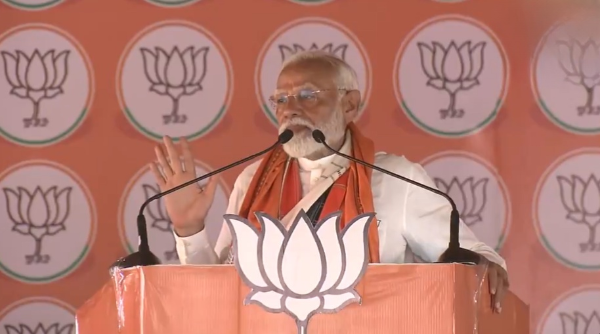Prime Minister Narendra Modi, while addressing a public gathering in Patliputra, Bihar, criticized the Congress party for changing the law related to minority institutions. He claimed that these changes were made overnight to appease their vote bank and resulted in thousands of institutions being declared as minority institutions.
“Earlier, SC/ST/OBC used to get full reservations during admission to these institutions,” the Prime Minister said, referring to the Scheduled Castes (SC), Scheduled Tribes (ST), and Other Backward Classes (OBC).
The Prime Minister’s comments come in the backdrop of a long-standing debate over the reservation policies in India. About 60% of seats in government jobs and higher educational institutions are reserved for various sections like ST, SC, OBC, and Economically Weaker Sections (EWS).
However, the Supreme Court has held that SC/ST/OBC reservation does not apply to minority educational institutions. The government cannot compel such institutions to provide reservations to SC/ST/OBC candidates. This ruling has sparked a debate over the balance between minority rights and social justice.
The changes to the laws governing minority institutions were made by the Congress-led government in 1981. These amendments sought to grant minority status to Aligarh Muslim University (AMU) among others. However, the Supreme Court has observed that these amendments fell short of conferring the “complete minority character” on AMU.
The Prime Minister’s remarks have reignited the discussion on the complex interplay between minority rights and affirmative action in India. It remains to be seen how this debate will shape the future of educational policies in the country.



